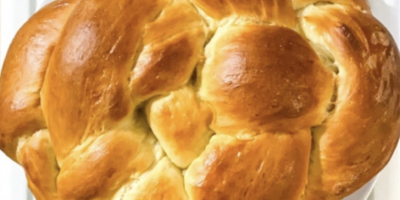Hélène Cixous: Post-Colonial Jew
Hélène Cixous, French writer, philosopher, feminist and activist, is best-known in the United States for The Laugh of the Medusa (1976), a feminist manifesto about feminine writing (“écriture feminine”), where she lays out the foundations for a form of writing liberated from the constraints of masculine logic. In France, however, she is a more controversial figure, a kind of French Susan Sontag, who, as a radical academic, founded an interdisciplinary program devoted to researching sexual difference.
In one of her two most recently translated works, Reveries of the Wild Woman, Primal Scenes (Northwestern, $17.95), Cixous presents a deeply evocative autobiographical account of her years growing up Jewish in Algeria. In this precise and graceful translation by Beverley Bie Brahic, Cixous describes her native Algeria as a place she knows intimately from her formative years. Set between the Vichy regime in the early 1940s and the Algerian War of Independence in the 1960s, this book offers an eloquent meditation on post-colonial identity and gender.
Born to an Algerian-French father and a German mother, both Jews, Hélène Cixous was excluded from feeling Algerian (i.e., Muslim) and hence was often considered by the native Algerian population as an accomplice of the French colonizers. Yet, being Jewish, she didn’t feel fully French either, and neither did the French make her feel as one of them. She was “in-between,” neither here nor there, sensing in very deconstructionist fashion (philosopher Jacques Derrida’s influence on Cixous is well documented) that she was “being possessed by a feeling of dispossession.” This plays itself out, for instance, in the memory of the Bike (always capitalized) that Cixous waits four years for her mother to buy for her and her brother. When their mother finally does, she gets it wrong: instead of getting a unisex Bike, “a Bike to share” she gets, to her son’s dismay, a girl’s bike. And at that point, she is no longer interested anyway, and the bike is used exclusively by her brother in his explorations of Algerian soil. Narrated in a tone that dangles playfully between comedy and tragedy, the trauma also facetiously known as “l’affaire du Vélo” (the Bike affair), is both seen through the eyes of Cixous as a child and simultaneously analyzed in the voice of the adult writer. Cixous’s longing for the Bike points to the theme of absence that permeates this novel, and serves as a subtle metaphor for the annulment of the self that results from colonization.
How then to fill the gaps, or the “phantomization” as Hélène Cixous calls it, at the core of her “identity,” a word she seems to avoid? In the opening pages, the narrative offers the only possible redemption, described in religious terms: Writing transpires as the sole creator of meaning. Yet even this proves elusive, as the book closes with the narrator sitting down to write and picking up where she left off as she goes back to the same opening lines of the beginning: “The whole time I was living in Algeria I would dream one day of arriving in Algeria.” It is as if she is suggesting that whatever existed in between the beginning and the end of the narrative was just a parenthesis and had instantly been annulled. Yet between that first and last word, Hélène Cixous gives the reader a rich, complex and poetic example of her command of language.
Language is also at the heart of The Day I Wasn’t There, also translated by Beverley Bie Brahic (Northwestern, $19.95), another autobiographical narrative, in which Cixous’s narrator revisits the death of her Down Syndrome child 40 years earlier, a child she had given over to her mother’s care when she left Algeria after high school to study in Paris. Here, though, writing is a sublimation of the deficiencies of motherhood rather than of the blanks left by exile. The meditation on motherhood forks into a reflection on Cixous’s relationship with her mother, whose bond with Omi, her own mother, is in turn considered. Finally, motherhood is analyzed in the wider context of Algerian society where having a child (preferably a boy) is like the payment of a debt to the husband, and not having one is equated with failure. But the baby with Down Syndrome is also a way for Hélène Cixous to present herself as a free woman, a woman without debt.
The investigation into the causes of Cixous’s baby’s death becomes a story within a story, one version told by the mother and another one by the brother, culminating in a final revelation both unbearable and somehow unclear. The repetitions and meanderings of this luminous text serve as charms, the only things able to ward off guilt and pain. They suggest that beyond the sentence, beyond the words, beyond the ink, it is Cixous’s ability to become a mother that is slowly, slowly, being delivered.
Yaëlle Azagury is a lecturer in French at Barnard College, where she researches North African Francophone literature.


